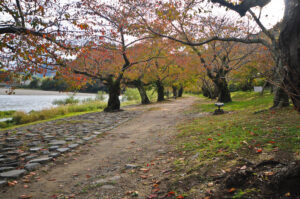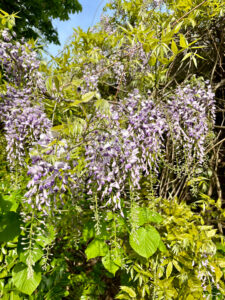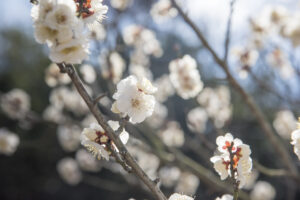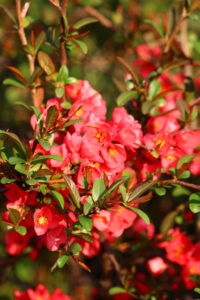Japan, an archipelago nation in the Pacific, stands as a profound example of a country deeply intertwined with the natural world. Its landscapes, ranging from the snowy peaks of Hokkaido to the subtropical beaches of Okinawa, are not just physical features but integral components of the Japanese identity. This connection is evident in every aspect of life in Japan, from its religious practices to its urban planning, art, and even technology. "Embracing Green: Japan’s Deep-rooted Love for Nature" delves into the myriad ways in which Japan has maintained a harmonious relationship with its environment, showcasing a commitment to sustainability that blends ancient traditions with modern innovations.
Embracing Green: Unveiling Japan’s Natural Love
Japan’s affinity for nature is not a recent trend but a fundamental aspect of its culture. This connection is profoundly rooted in the country’s history, where nature has been revered and incorporated into daily life. The Japanese language itself reflects this, with numerous words dedicated to describing nature’s beauty and transience, such as "kigo," seasonal words pivotal in haiku poetry. The appreciation for nature is also evident in traditional practices, from the art of ikebana (flower arranging) to the architectural principle of blending indoor and outdoor spaces seamlessly.
The Ancient Roots of Japan’s Environmental Ethos
The environmental ethos of Japan is steeped in history, dating back to when the earliest inhabitants developed spiritual practices centered around nature’s forces. These ancient beliefs laid the groundwork for a societal respect for the natural world, a respect that has persevered through centuries. Historical records and artifacts reveal that conservation practices, such as sustainable fishing and forestry, were implemented in Japan long before they became a global concern. This deep-seated respect for nature is a cornerstone of Japanese culture, influencing everything from governance to daily living.
Shinto Beliefs: Nature Worship and Sustainability
Shinto, Japan’s indigenous faith, epitomizes the country’s spiritual connection to nature. Shinto shrines, often located in breathtaking natural settings, are considered dwelling places for "kami" or spirits found in all elements of nature. This belief system promotes a sense of reverence and responsibility towards the environment, encouraging sustainable practices. Festivals and rituals associated with Shintoism, such as the planting and harvest festivals, reinforce the bond between humans and the natural world, reminding society of the cycles of life and the importance of living in harmony with nature.
The Cultural Tapestry: Nature in Japanese Art
Japanese art, whether it be painting, poetry, or garden design, is imbued with references to nature, reflecting the country’s environmental appreciation. The use of natural themes can be traced back to ancient times and is prevalent in various art forms. The celebrated ukiyo-e woodblock prints of the Edo period, for instance, often depict scenes of natural beauty ranging from Mount Fuji to the delicate cherry blossoms. This artistic tradition not only highlights the aesthetic value of nature but also serves as a constant reminder of the ever-present relationship between the Japanese people and their environment.
Green Urbanism: Tokyo’s Eco-friendly Transformations
Tokyo, one of the world’s most populous cities, is at the forefront of integrating nature within an urban setting. Efforts to green the city are evident in projects like the redevelopment of the Shibuya River and the creation of rooftop gardens atop skyscrapers. These initiatives not only improve air quality but also provide residents with much-needed green spaces, proving that urban development and environmental conservation can go hand in hand. Tokyo’s transformation is a testament to Japan’s commitment to creating sustainable urban environments that value the presence of nature.
Forest Bathing: Japan’s Prescription for Well-being
"Shinrin-yoku" or forest bathing, a practice that involves immersing oneself in the forest atmosphere, is a Japanese innovation that has gained international recognition for its health benefits. This practice underscores the Japanese belief in nature’s healing powers. By simply being in nature, individuals can reduce stress, improve mood, and enhance overall well-being. Forest bathing is not just a leisure activity but a reflection of Japan’s holistic approach to health, emphasizing the importance of the natural world in maintaining physical and mental balance.
The Tea Ceremony: A Ritual in Harmony with Nature
The Japanese tea ceremony, more than just a social gathering, is a spiritual and aesthetic confluence of nature and humanity. Every element of the ceremony, from the utensils used to the tea room’s architecture, is designed to celebrate and harmonize with nature. The ritual, which changes with the seasons, acts as a reminder of the transient beauty of the natural world and encourages participants to live in the moment. This practice exemplifies how traditional Japanese culture seamlessly blends daily life with the appreciation of nature.
Japan’s Seasonal Celebrations: A Year in Nature
Japan’s seasonal celebrations are a vibrant testament to the country’s reverence for nature. From the cherry blossom viewings of spring to the autumn moon-viewing parties, each season is marked by festivals that celebrate nature’s cyclicality. These celebrations are not only an opportunity for communal gathering but also a moment to reflect on the impermanence of beauty and the importance of living in harmony with the changing seasons. Through these festivals, nature is woven into the social fabric of Japan, enriching the cultural identity with a deep-seated appreciation for the environment.
The Role of Gardens: Miniaturized Natural Landscapes
Japanese gardens are a microcosm of the country’s broader environmental philosophy. These meticulously designed spaces replicate natural landscapes on a smaller scale, embodying the principles of harmony, balance, and beauty. Whether it’s a Zen rock garden or a stroll garden with ponds and streams, each element is placed with intention, reflecting a deep understanding and respect for nature. These gardens serve as tranquil havens in both rural and urban settings, offering a space for meditation and connection with the natural world.
Innovation Meets Tradition: Japan’s Eco-tech Surge
Japan’s commitment to sustainability is also evident in its embrace of eco-friendly technologies. Innovations in renewable energy, such as solar and wind power, are increasingly prominent, as is the development of energy-efficient appliances and electric vehicles. These advancements, however, are not simply about technological progress; they are about harmonizing modern life with environmental principles. By blending traditional values with innovative solutions, Japan is positioning itself as a leader in the global movement towards a more sustainable future.
Wildlife Conservation: Preserving Japan’s Biodiversity
Japan’s rich biodiversity is another aspect of its natural heritage that is vigorously protected. From the snow-capped mountains to the coral reefs, efforts are underway to conserve the habitats of endangered species and maintain ecological balance. Initiatives range from community-led forest conservation projects to government-implemented protective legislation. This dedication to preserving biodiversity not only benefits the environment but also ensures that future generations can enjoy and learn from Japan’s natural wonders.
From Local Efforts to Global Leadership in Sustainability
Japan’s journey towards sustainability is a model of how local practices and beliefs can influence global environmental policy. The country’s blend of ancient traditions and modern innovations offers valuable lessons in living sustainably. As Japan continues to lead by example, it encourages other nations to consider how their cultural heritage can inform and inspire their environmental efforts. Japan’s deep-rooted love for nature, therefore, is more than just a national trait; it’s a global blueprint for harmony between humanity and the environment.
Japan’s profound connection with nature is a testament to its cultural and spiritual legacy. This deep-rooted appreciation extends beyond mere admiration to influence every facet of Japanese life, from technology and urban planning to traditional arts and practices. Through its harmonious blend of ancient traditions and modern innovations, Japan exemplifies how societies can live sustainably while remaining deeply connected to the natural world. "Embracing Green: Japan’s Deep-rooted Love for Nature" not only celebrates this unique relationship but also serves as a reminder of the importance of integrating respect for the environment into the fabric of our lives, ensuring a greener, more sustainable future for all.








